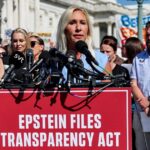A federal judge on Friday denied requests from former Sports, Parks and Recreation Commissioner Calvert White and business owner Benjamin Hendricks to secure a new trial or acquittal on the charge of wire fraud, one of two charges the pair were both convicted of last summer.
A jury found White and Hendricks guilty of honest services wire fraud and bribery in late July after a weeklong trial in the U.S. District Court on St. Thomas. Their attorneys quickly asked for a new trial on the basis of an answer Judge Mark Kearney gave to jurors during their deliberations, which attorney Clive Rivers said “failed to adhere to the rules of evidence that questions of fact should always be determined by the jury.”
“We read Jury Question 3 as including a question of law,” Kearney wrote in an opinion dated Friday. “The United States agreed. Commissioner White and Businessperson Hendricks did not. They objected to answering the question at all as invading on the jury’s province. We agreed with Commissioner White and Businessperson Hendricks to not comment on whether there is common knowledge about WhatsApp and text messages and phone calls using servers outside the Virgin Islands. But we disagreed as to providing the jury with the definition of wire fraud as part of Jury Question 3.”
Jurors had asked Kearney whether it was “common knowledge” that text messages, WhatsApp messages and phone calls between people in the U.S. Virgin Islands use networks, systems or servers outside of the territory — and whether those communications are considered wire transactions.
“Ladies and gentlemen, you are presenting a question of both a fact and a law,” Kearney told the jury at the time. “As I mentioned to you yesterday, I don’t get involved in questions of fact. That’s entirely your province. You decide as to questions of fact. However, there is a question of law built into this as well, and I want to read to you what the question of law, I believe, is. Use of the telephone, internet, text messages, email, or other similar means of communication qualifies as interstate wire communications under the act.”
Rivers later argued that Kearney and “invaded the province of the jury” with that answer and that the “existence and effect of certain communications presented a factual question that was decided by the trial court instead of the jury.”
During a telephonic hearing last week, Kearney attempted to examine which part of the answer Rivers objected to and asked whether Rivers believed that his “statement as to the law was inaccurate — that use of the telephone, internet, et cetera qualifies as a state wire communication.”
Rivers began to repeat his argument that it was a question of fact before Kearney cut him off.
“No, that’s not a fact,” he said. “Mr. Rivers, don’t play with me. Is that a question of law or a question of fact I just read?”
Rivers eventually conceded that “the law is the law.”
Federal prosecutors have said Rivers’s claims are without merit. In his response to jurors, they argued, Kearney, “after discussion with all parties, identified a potential point of confusion within the question and attempted to provide a legal standard to answer that question and clear up any uncertainty.”
Justice Department attorneys noted that jurors heard testimony about wire transfers from a FirstBank manager, Herbert Vega-Lopez, and the government’s cooperating witness in the case, David Whitaker. Last week, Kearney asked trial attorney Alexandre Dempsey to respond to Rivers’s claims that the testimony was “insufficient to prove the jurisdictional element” of interstate communications.
“I strongly disagree with that contention,” Dempsey said. “I believe Mr. Vega testified that the bank servers are all located … in the territory of Puerto Rico. Combining that with testimony from Mr. Whitaker that he was present in the Virgin Islands at that time — where he initiated the wire transfer — Mr. Vega’s testimony was that that transfer, if initiated, would have to go through FirstBank servers that are located in Puerto Rico. He additionally went on to clarify, explicitly, that there are literally no servers of FirstBank in the Virgin Islands at all.”
Kearney also recently denied a separate request from White, who was not detained ahead of sentencing, to spend three weeks in Florida next month. Kearney noted that White is required to check in with a probation officer every week and said he would allow a shorter visit, “but it’s got to be at a period of time where he sees the probation officer one week and then sees him the following week.”
St. Croix Source
Local news



